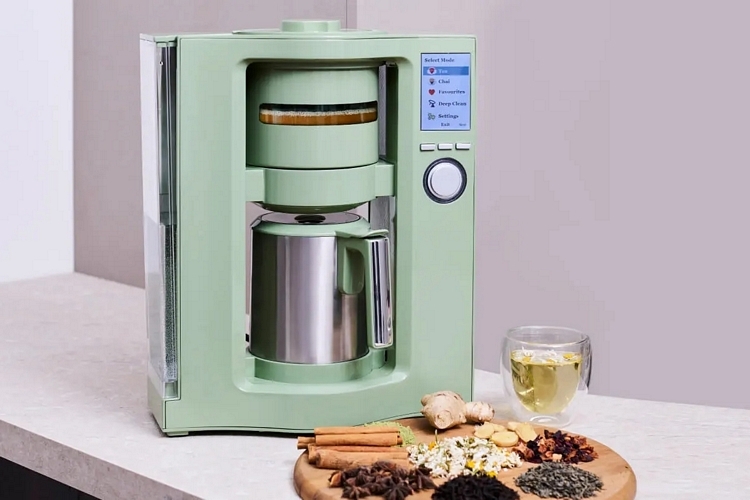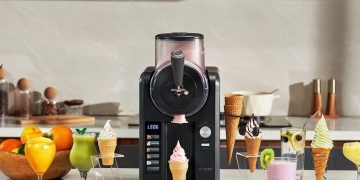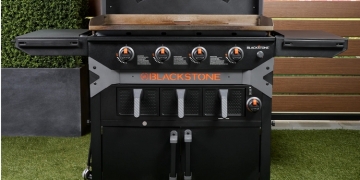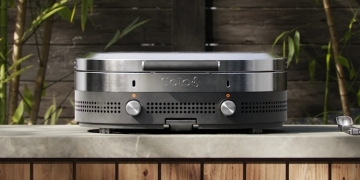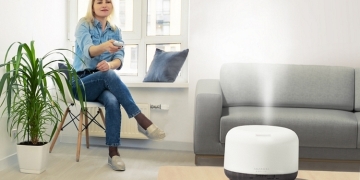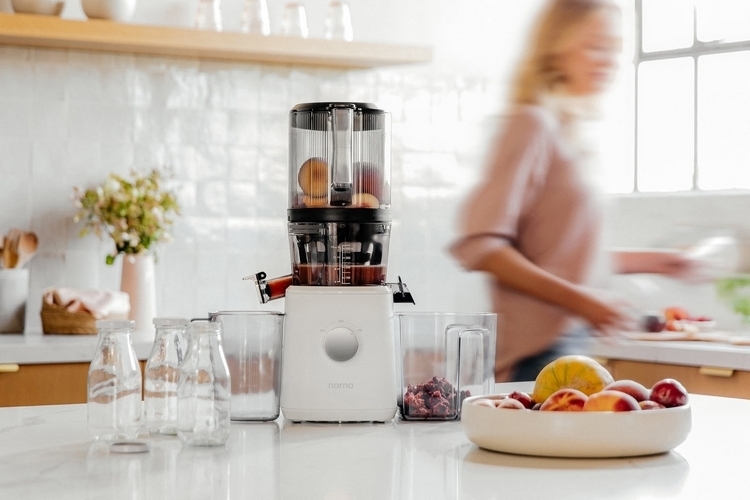
It’s easy enough to buy boxed and bottled juices at the grocery. And there are enough good options that you can make healthy choices consuming them. However, if you want maximum flavor and freshness, nothing beats having your own juicer at home. Not only does a dedicated juicer let you enjoy freshly-squeezed juice with intense flavor and velvety texture, it also allows you to customize the fruits and veggies you use for your daily beverages, giving you room to experiment with new flavor combinations. Even better, juicers aren’t just for making healthy and tasty refreshments, as you can use the liquids you extract from them to flavor everything from soups and stews to dressings and sauces.
There are two general types of juicers that people use at home: centrifugal juicers and slow juicers. Centrifugal juicers are the traditional types of pulp-grinding appliance that relies on a fast-spinning blade to shred all the produce you put inside as quickly as possible, allowing you to produce a good amount of juice in very little time. Slow juicers, on the other hand, use an internal mechanism that moves at more deliberate speeds to crush and squeeze each piece as it passes through, so it takes a much longer time to get your juice. Additionally, many slow juicers will require you to cut your fruits and veggies in smaller pieces that will fit into their feed tubes, so there’s a lot more food prep involved.
The faster, the better, right? Well, not always. Many people believe that slow juicers are much better at retaining all the nutrients from produce with their slow and gentle juicing process, as the violent whirring of a centrifugal juicer’s sharp teeth produces a fair amount of heat, which can reduce the quality of nutrients you would otherwise get from the juice. Not to mention, those fast juicers are downright noisy. However, the speed of centrifugal juicers, coupled with the foaminess of their juice (you can’t get the same level froth with slow juicers), continues to make them more attractive to a lot of people.
These are the best juicers for making your own fresh juice at home.
Ninja JC151 NeverClog Cold Press Juicer
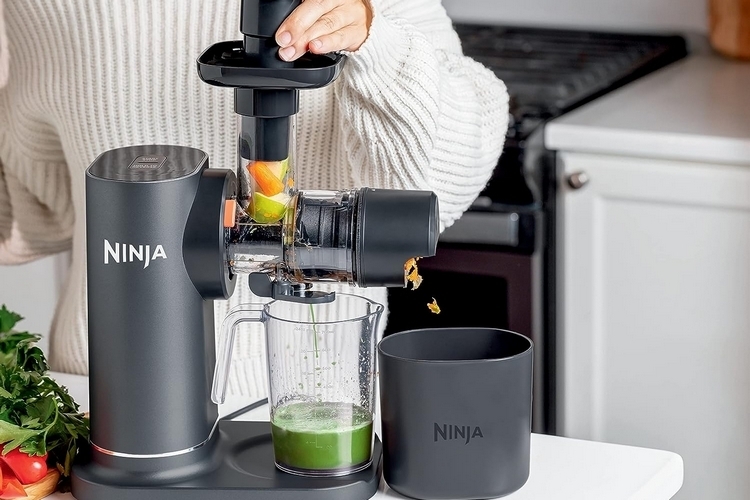
We love this slow juicer’s smaller footprint, making it easier to fit in a crowded countertop, although it does mean it’s harder to use when making big batches of juice. For the most part, this is a perfect juicer for smaller households who make one or two glasses at a time, as well as folks who plan to use a juicer sparingly rather than a daily ritual. Like many cold press juicers, it uses a narrow feeder that requires smaller cuts of fruits and veggies, so there’s a little more prep work involved, although it does have a relatively powerful motor that churns through the produce at a consistent pace, so you don’t waste any time having to clear any clogging. It produces a good quality of juice, with the swappable filters allowing you to control the amount of pulp that goes through, although we do feel its discards are a bit too wet (not much, but more so than others), which means it doesn’t maximize the juice yield the way more thorough machines would. Still, the combination of price, size, and ease of assembly make this an incredibly convenient option.
Breville Juice Fountain Plus
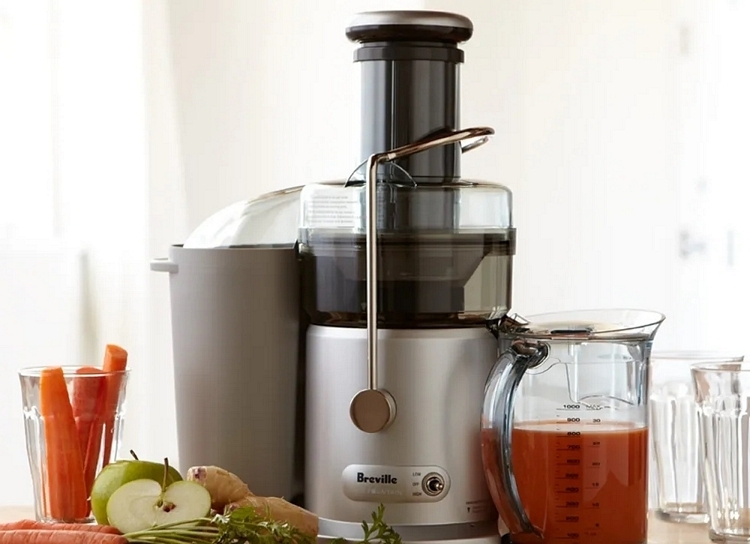
A centrifugal juicer, this appliance specializes in drawing out juices quickly, albeit in a loud and violent manner, courtesy of its titanium-reinforced stainless steel cutting disc and 850-watt motor. It juices really fast, though, allowing you to make a big batch in short order. We also appreciate the three-inch wide feed chute, which is large enough to let you put in smaller fruits and veggies without slicing, as well as the two speed settings, allowing you to operate it at a slower (and quieter) pace when dealing with soft fruits and leafy greens, so the motor doesn’t have to go gung-ho at all times. The pitcher for collecting juice comes with a built-in froth separator, by the way, allowing you to pour foam-free juice if you prefer that, while giving you the option to remove the cover if you actually enjoy foam in your fresh juices.
Omega J8006HDS Cold Press Juicer
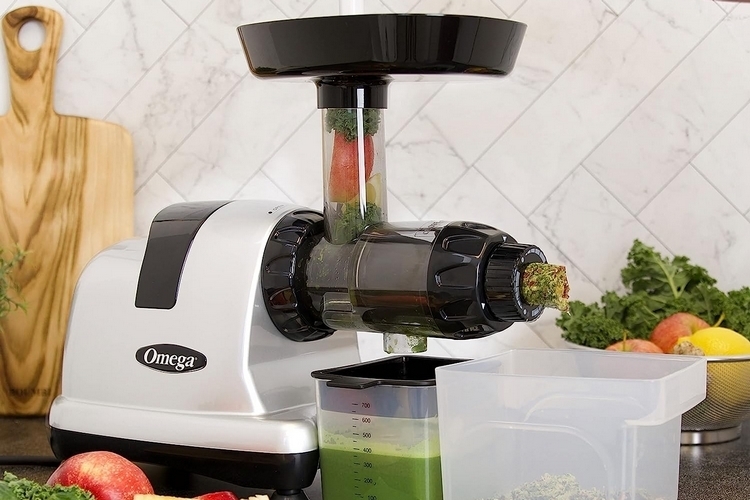
This masticating juicer uses a three-stage auger that applies more pressure as the produce progresses through the tube, ensuring you get the most of all the flavor, nutrients, and color from your fruits and veggies. However, that intense juicing actually produces a bit more noise than other slow juicers, so it’s not quite as silent as other options in the category, despite the motor running at a very contained 80 RPM pace. Like many slow juicers, it has a pretty narrow feed chute, so you need to cut ingredients smaller to fit them, while the larger size means this will take up a good load of countertop real estate. We also love the included attachments, which allow it to become a more versatile kitchen tool, as it can make nut milk, extrude pasta, grind spices (and even coffee beans), mince herbs, and even whip up frozen desserts. Performance varies for the extra functions, but the juicing itself is very solid.
Hurom H-AA Slow Juicer
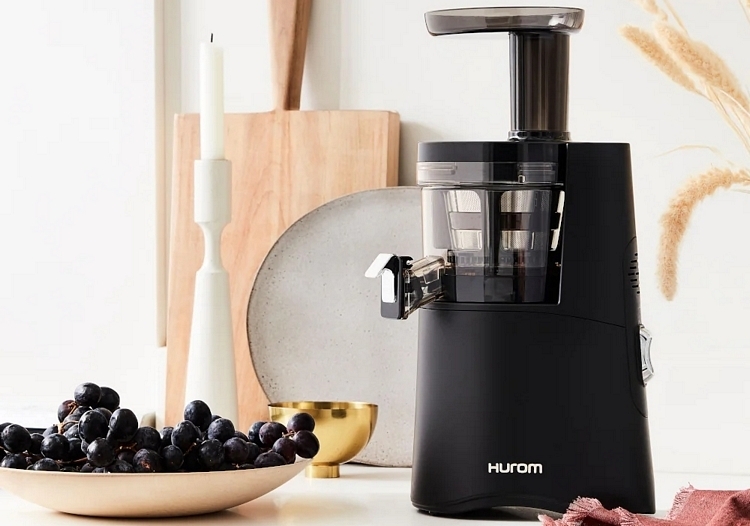
If you want a cold press juicer that maximizes the yield in each batch, you might appreciate this model, which consistently drains produce down to a nearly-dry pulp. It’s quiet, too, running at just 43 RPM, all while capably juicing even the densest fruits and vegetables we put inside. According to the outfit, that slow rotation paired with their auger design mimics the natural rotation of hand-squeezed juice, allowing it to thoroughly drain liquids out of the pith in an efficient manner. The juice it produces has deep color and intense flavor, too, all while giving you the option to add some pulp residue in your juice for texture by using the looser strainer. If there’s any complaint, it’s the narrower chute, which is common enough in slow juicers so you’ll just have to give the chopping board some work, and the slightly complex design, which makes it a bit of a pain to assemble each time after cleaning. On the upside, they did add a safety feature that keeps the device from running unless everything is properly secured in place (yes, it’s necessary).
Nama J2 Cold Press Juicer
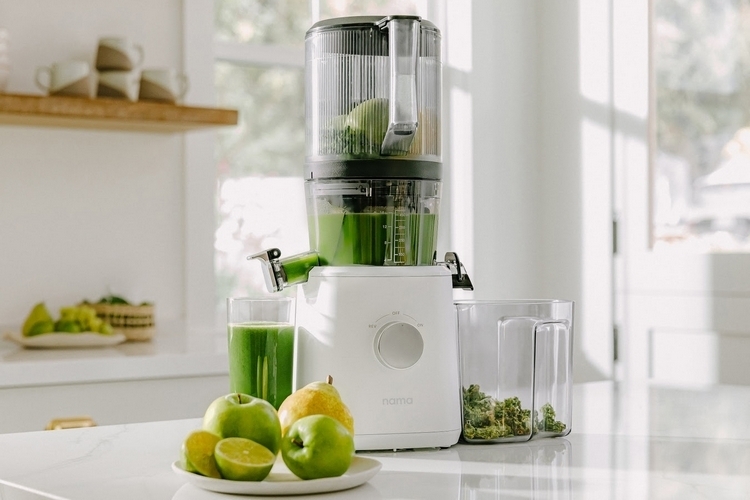
Not a fan of the big amount of prep work slow juicers require? This model should have you covered, as it uses a self-feeding hopper that can handle large pieces of fruits and vegetables on its own, eliminating the need to cut your produce to small pieces and feed them in one at a time. Seriously, you just place the large slices of produce inside like you do on a blender and leave it to juice on its own, although they do advice to put harder ones at the top for best results. From there, you just turn it on and wait for the juice to fall out, with the machine automatically separating the juice from the pith into separate containers.
According to the outfit, their juicer can yield up to 60 percent more juice using the same amount of ingredients compared to centrifugal juicers, which is impressive. More importantly, though, we love the foam-free, vibrantly-colored, and silky smooth juice it produces. Features include a top hole on the lid that lets you insert ingredients without having to open the hopper, an auto-off function that activates when the cover is lifted, and an additional strainer for smoothies, soups, sauces, and plant-based milks, in case you want to use it for something other than juice.
Kuvings Whole Slow Juicer
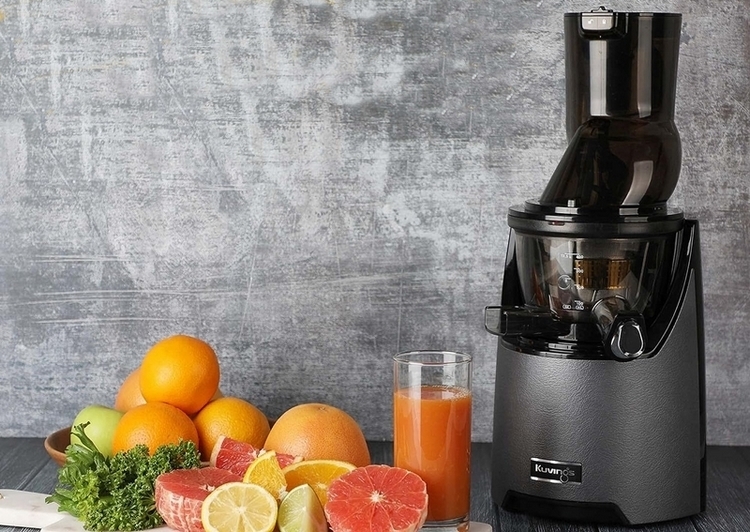
Running at just 50 RPM, this slow juicer’s motor quietly churns through your produce on its way to turning out, quite possibly, the smoothest, brightest, and most flavorful juice we’ve ever extracted. It’s downright impressive. We also love its vertical design, which minimizes footprint, although it does run a bit tall at a foot and a half if you have low-hanging shelves or cabinets in the kitchen. The feed chute measures 3.2 inches wide, allowing it to fit small fruits and veggies even without slicing, while the larger pulp outlet duct allows it to get rid of pulp quickly, minimizing any residues on the juice that you’ll have to strain (it has a strainer you can put in the container to catch any remnants). Do note, the parts of this cold press juicer aren’t dishwasher-safe, so you’ll have to clean everything by hand afterwards.

